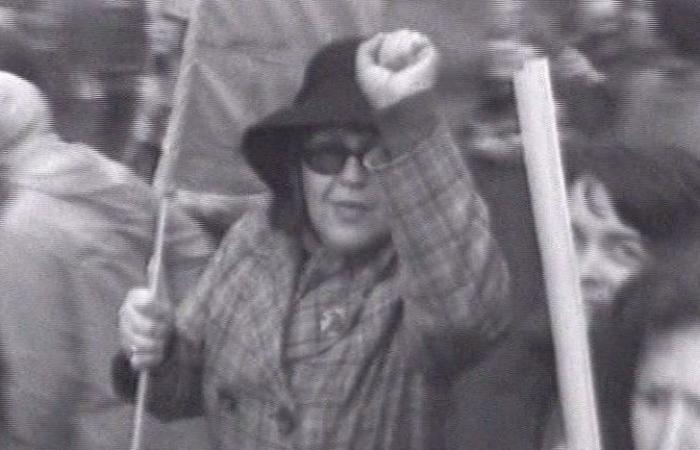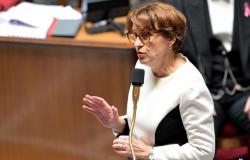
With more than 80 novels and essays published throughout her life, Françoise d'Eaubonne marked her time with abundant writing and ideas that were as radical as they were avant-garde. But she, who was involved in all the battles of her time and who was ahead of those of ours, did not just write! Françoise d'Eaubonne was also a fervent activist who fought a lot with different movements (MLF, FHAR among others), most often underground.
“It is a force of nature, a kind of primordial chaos which becomes extraordinarily fertile but which is not ordered. She has always been both radical and deeply pacifist, humanist.” Marie-Jo Bonnet about Françoise d'Eaubonne
Development of ecofeminism and beginnings of political ecology
In a context of oil crisis and awareness around the destruction of the planet and the exploitation of resources, Françoise d'Eaubonne was able to catalyze new ideas on ecology to bring about ecofeminism. His “trait of genius” according to Marie-Jo Bonnet is to have made the link between domination of nature and domination of women.
During a meeting of the Homosexual Front for Revolutionary Action (FHAR) she heard her comrade Alain Fleig explain that “The problem of revolution takes second place to the ecological emergency” and confided to his friend Marie-Jo Bonnet that it took him a year to understand this formula and grasp the ecological emergency!
Françoise d'Eaubonne's thought materialized in 1974 when she published Feminism or death and launched the ecofeminist movement of which the call will appear the same year in Charlie Hebdo (n°199). Marie-Jo Bonnet recalls that “at that time she was really all alone, she was a visionary.”
Earth squared Listen later
Lecture listen 54 min
Anti-nuclear beliefs and struggles
The nuclear threat was also a very important issue for Françoise d'Eaubonne. She was thus inspired by the positioning of women against the atom in Germany by taking the example of groups benefiting from a less reluctance to campaign in the field of identity, that is to say as a mother or resident of the region affected by nuclear projects – like the women's camp in Greenham Common in 1981 in England or models that can be found today in ZADs in France.
In 1975, she participated in the blasting of the hydraulic circuit pump of the Fessenheim power station under construction, thus delaying its start-up by several months. Although the action was anonymous, the text of the claim recalled — in a very “d’eaubonnien” — “that women are at the forefront of the refusal of nuclear power which is none other than the last word of this society built without them and against them”
Françoise d'Eaubonne remained discreet about what was described as an attack in Fessenheim: “It was the peak of my life but I don’t want to talk about it.”
Why such late recognition?
According to Marie-Jo Bonnet, Françoise d'Eaubonne was not known or recognized during her lifetime for several reasons. On the one hand, she remained outside the institutions and was supported neither by a husband nor by a party. And on the other hand, she did not seek to obtain power; on the contrary, she fought him. She didn't want to be in the spotlight at all and wasn't interested in a career in politics. She was an intellectual for whom any revolutionary movement must aim not at power but at its destruction because power rots the imagination, but she claimed the need to engage our imaginations in the fight against the male system.
Marie-Jo Bonnet says: “Françoise was inaudible. She was marginalized and misunderstood, I did not realize how scandalous this sidelining was. Let’s say that at the time, you had to have diplomas to be heard.”
“We never thought that there would be a resurgence of Françoise's thought today, we thought she was too pioneering. But, that's it, she has made history! The world is finally ripe to hear what she had to say that was revolutionary!”
Numerous reissues of the works of Françoise d'Eaubonne have nourished the heritage and reflections of ecofeminist movements in recent years. But although it has found its way back to bookstores, its revolutionary ideas and its project of demographic decline remain on the margins.
Find among the works of Marie-Jo Bonnet:
– Mon MLF published by Albin Michel, 2018: story of his commitment to this movement.
– Symbolic motherhood, Being a mother differently also at Albin Michel, 2020.
To go further, listen to the show…





